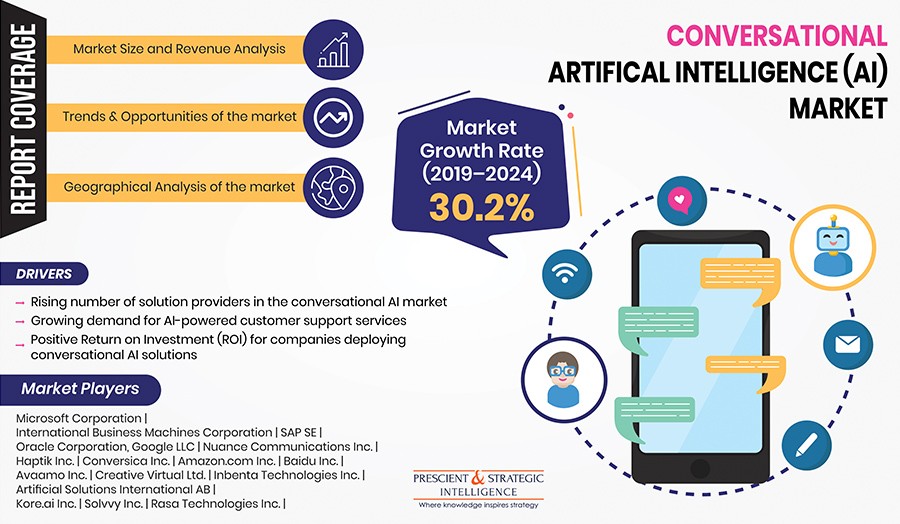Conversational AI offers a wide range of business advantages, including improved customer service, lead generation, and demand generation. Businesses frequently employ these AI-based solutions to increase the efficiency of cross- and up-selling by sales personnel.
 |
| Conversational AI Market Size and Share Analysis Report |
Additionally, as the technology develops and becomes more sophisticated, new conversational AI applications will help and/or automate more operational areas.
By 2030, it is predicted that the conversational AI market would be worth USD 41,890 million, as per P&S Intelligence. The increasing need for AI-based customer support services, falling chatbot development costs, and omnichannel implementation are credited for this.
Demand for AI-Powered Customer Support Services Is Growing
One of the key drivers of the industry's growth is the increasing demand for AI-powered customer support services. These services have been automated using conversational AI technologies including chatbots, intelligent voice assistants, and intelligent IVR.
Additionally, the usage of conversational tools that are AI-enabled engages consumers by obtaining pertinent data about them before passing it on to a human agent, improving job productivity and giving users a more tailored experience. Moreover, these tools help customers make wiser selections when it comes to buying goods or services.
Companies would profit from constant customer interaction, 24x7 availability, higher engagement, and reduced mistakes as more businesses use conversational AI solutions in their company operations, which will fuel market growth.
The service sector will see a faster development, with a rate of 23.1%, in the years to come. This may be a result of the growing need for improved customer service in important industries, such as media and entertainment, BFSI, and tourism.
Moreover, conversational AI systems depend heavily on services, such as training, system integration, support and maintenance, and consultancy to work properly.
Furthermore, the platform category represented a large share, and it is predicted to hold this position in the years to come. This is because chatbots and IVAs are being used more often across all industries to engage customers, provide ongoing assistance, and deliver individualized service.
Around 46% of revenue was generated by chatbot sales, and it will continue to do so. This is linked to chatbot usage rising due to its numerous advantages, including more accurate data, constant customer service, quick responses, reduced error, and greater customer satisfaction levels.
Positive Return on Investment for Businesses Using Conversational AI Solutions
Conversational AI solutions have benefited organizations in a number of ways, most notably by enhancing the customer experience. Businesses must pay a one-time fee for the installation of conversational AI chatbots, but doing so will pay off for them in the long term.
By rapidly responding to customers' basic questions, chatbots may increase user engagement. They can also increase productivity by handing off difficult issues to human agents.
The
need for extensive staffing is removed since a chatbot may participate in
several conversations at once to address multiple inquiries simultaneously.
Businesses save a ton of money as a result, and ROI increases.








